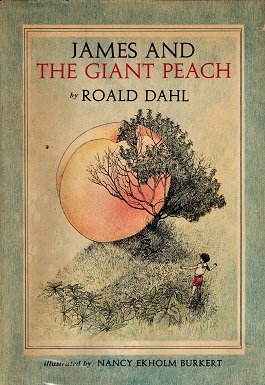Thomas Mann
Explore the comprehensive timeline of Thomas Mann, a prominent German novelist and essayist. Discover key events in his life, including major works, awards, and personal milestones that shaped his contributions to literature and culture.
Birth of Thomas Mann
Thomas Mann was born on June 6, 1875, in Lübeck, Germany. He was born into a wealthy family; his father was a senator, and his mother was a Brazilian-German of partly Portuguese descent. Mann would grow up to become one of the most important figures in 20th-century literature, renowned for his finely wrought novels that explore the tension between the artist’s life and bourgeois society, the nature of totalitarianism, and the role of human culture in an uncertain world.
Publication of 'The Magic Mountain'
Thomas Mann published one of his most famous novels, 'The Magic Mountain' ('Der Zauberberg'), in February 1924. The novel is a monumental and symbolic work that reflects Mann's meditative outlook on European society on the eve of World War I, exploring themes such as time, illness, and enlightenment. The book centers around a young man named Hans Castorp and his extended stay at a sanatorium in the Swiss Alps.
Awarded Nobel Prize in Literature
On November 12, 1929, Thomas Mann was awarded the Nobel Prize in Literature. He received the prestigious award primarily for his early novel 'Buddenbrooks', which had been published in 1901 and depicted the decline of a wealthy merchant family over several generations. The Swedish Academy recognized Mann for his accomplishments in the art of the novel, noting his epic ambition and psychological insight.
Exile from Nazi Germany
Following Adolf Hitler’s rise to power in Germany on January 30, 1933, Thomas Mann faced an increasingly oppressive regime. Mann, who was known for his democratic and humanist principles, became a vocal critic of the Nazi regime. With the political situation deteriorating, Mann left Germany in 1933, initially going to Switzerland and later to the United States, where he continued expressing his opposition to totalitarianism.
Publication of 'Joseph and His Brothers'
In 1939, Thomas Mann completed and published 'Joseph and His Brothers' ('Joseph und seine Brüder'), a four-part retelling of the biblical story of Joseph. This epic work, spanning over 1,200 pages, showcases Mann's mastery of narrative and delves deeply into themes of myth and history, faith and doubt. The novel cycle is considered one of Mann's greatest accomplishments and reflects his interest in religious themes.
Becomes a U.S. Citizen
On July 7, 1941, Thomas Mann became a United States citizen. By becoming an American citizen during World War II, Mann took a clear stand against the Nazi regime in Germany. During his time in the United States, Mann lived in California and adapted to life in a new country, all the while continuing to write and speak against totalitarian regimes. His adaptation to American culture was complex and deeply informed his later works.
Publication of 'Doctor Faustus'
Thomas Mann published 'Doctor Faustus' in June 1947. This novel, written during his American exile, is a deep and complex narrative interweaving art, politics, and the mythical tale of Faust. It investigates the spiritual condition of Germany, the nature of artistic creation, and its responsibility in the context of Nazi culture. 'Doctor Faustus' is considered a key text for understanding Mann's later philosophy on responsibility and creativity.
Return to Europe
In 1952, Thomas Mann returned to Europe from the United States. After the end of World War II and living in American exile for many years, Mann decided to return to Switzerland, where he spent his remaining years. His decision reflected a longing for European culture and intellectual life. Mann settled in the town of Kilchberg, near Zürich, and continued his writing and public intellectual activities.
Death of Thomas Mann
Thomas Mann died on August 12, 1955, in Zürich, Switzerland. At the time of his death, Mann was a revered figure in both European and American literature. His passing marked the end of an era for modern literature. Throughout his life, Mann had received numerous accolades for his work and left a lasting legacy through his profound exploration of the human condition in his novels.
Publication of 'The Letters of Thomas Mann'
Posthumously, 'The Letters of Thomas Mann', a collection of his correspondence, was published in 1974. These letters provide insight into Mann's personal thoughts, relationships, and the socio-political milieu in which he lived. Edited by his daughter, Erika Mann, they reveal not just his literary craft and worldview but his thoughts on politics, exile, and identity, contributing to an understanding of his complex character.
Frequently asked questions about Thomas Mann
Discover commonly asked questions regarding Thomas Mann. If there are any questions we may have overlooked, please let us know.
What is Thomas Mann known for?
When was Thomas Mann born?
When did Thomas Mann die?
When did Thomas Mann win the Nobel Prize in Literature?
Related timelines
More timelines connected to Thomas Mann






